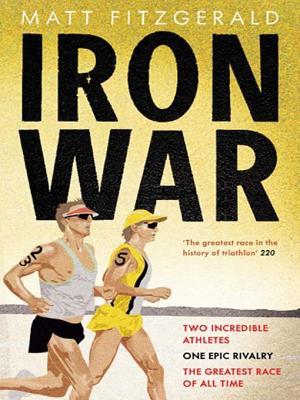More on this book
Kindle Notes & Highlights
Read between
April 8 - April 28, 2018
A hero is no braver than an ordinary man, but he is brave five minutes longer.
Endurance racing is steeped in the art of pacing.
Dave had always held fast to the belief that his hard work could trump another’s talent. This belief was, in fact, his most treasured article of faith – practically his entire life’s philosophy.
Forget about athletic backgrounds, Jim. Forget about swimming, cycling, and running experience. My edge is mental. I can pound it out with anyone at the end. Nobody can outlast me!
Dave liked anything that made a race harder, believing that every enhancement of the basic challenge increased his mental advantage over other competitors.
the pain that everyone acknowledges as a big part of the triathlon experience was in fact the very essence of the sport and that it served distinctly social purposes, helping men and women satisfy needs not met in their everyday lives.
It’s an acquired taste but, once acquired, addictive.
In the hardest moments of a long race, the athlete’s entire conscious experience of reality boils down to a desire to continue pitted against a desire to quit.
There is no yesterday and no tomorrow, only now.
the need to suffer stems from an underlying need to feel special, distinct from, and above one’s neighbors in meaningful ways.
Simply put, crossing the finish line feels good in large measure because it makes people feel good about themselves in comparison to others.
But in today’s real world, triathlon is one of the best ways to demonstrate toughness and courage, and the finish-line feeling is one of the best feelings imaginable.
The early Mission Bay Triathlons were filled with military men, who dominated the ranks (so to speak) of the sport’s pioneering generation.
The magnitude of the satisfaction that a triathlete experiences upon crossing a finish line is directly proportional to the amount of suffering he has overcome to get there.
They quit the sustained submaximal effort after twelve minutes because they could not bear the open-ended suffering anymore.
But even the athlete who masters this art must fight against a desire to quit in the last part of each race. If you don’t want to quit, you’re not doing it right.
exercise is cognitively demanding,
Mark Allen. Lance Armstrong. Haile Gebrselassie. Michael Phelps. History’s greatest triathlete, cyclist, runner, and swimmer all had difficult relationships with their dads in one way or another. Coincidence? Not bloody likely.
living in a difficult family environment may in fact strengthen the ACC in its own way.
‘There is now some evidence that chronic exposure to situations requiring self-regulation (in other words, the exertion of effort to control your own behavior) improves self-regulation in completely different situations,’
‘Chronic exertion of cognitive effort required to control your own emotions and deal with difficult family situations may induce neurocognitive adaptations that will translate into a competitive adv...
This highlight has been truncated due to consecutive passage length restrictions.
Dave wears no watch and is pacing himself completely by feel.
It’s all about expectations – hell’s a bit more bearable when you always knew you were going there.


